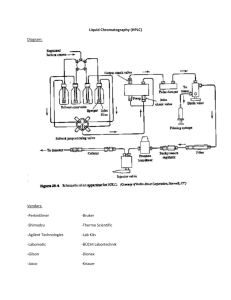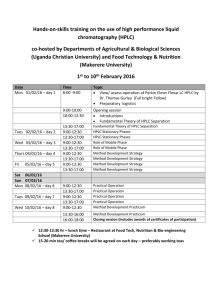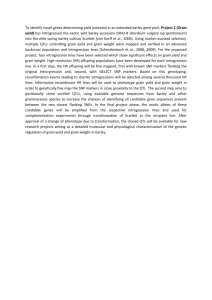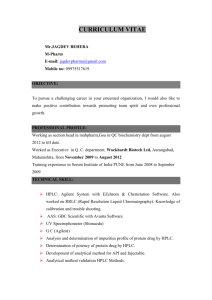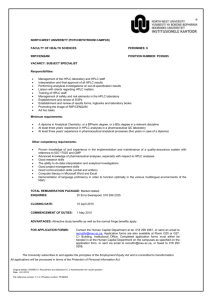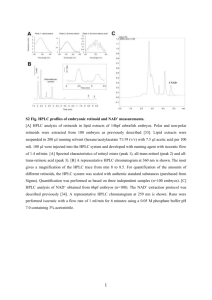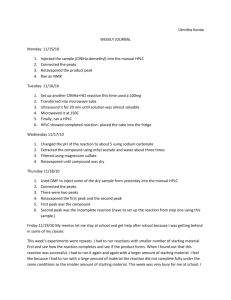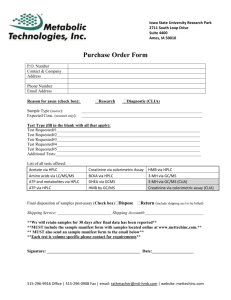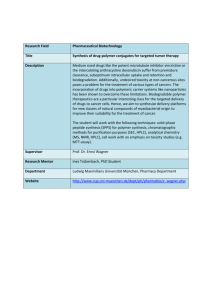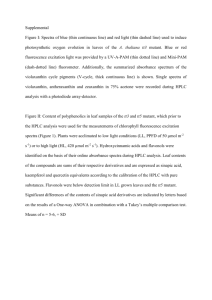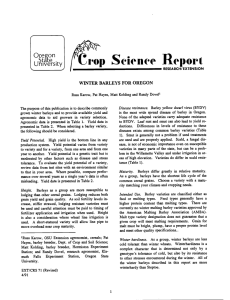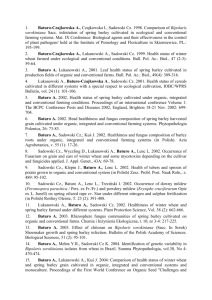SEALE-HAYNE EDUCATIONAL TRUST
advertisement
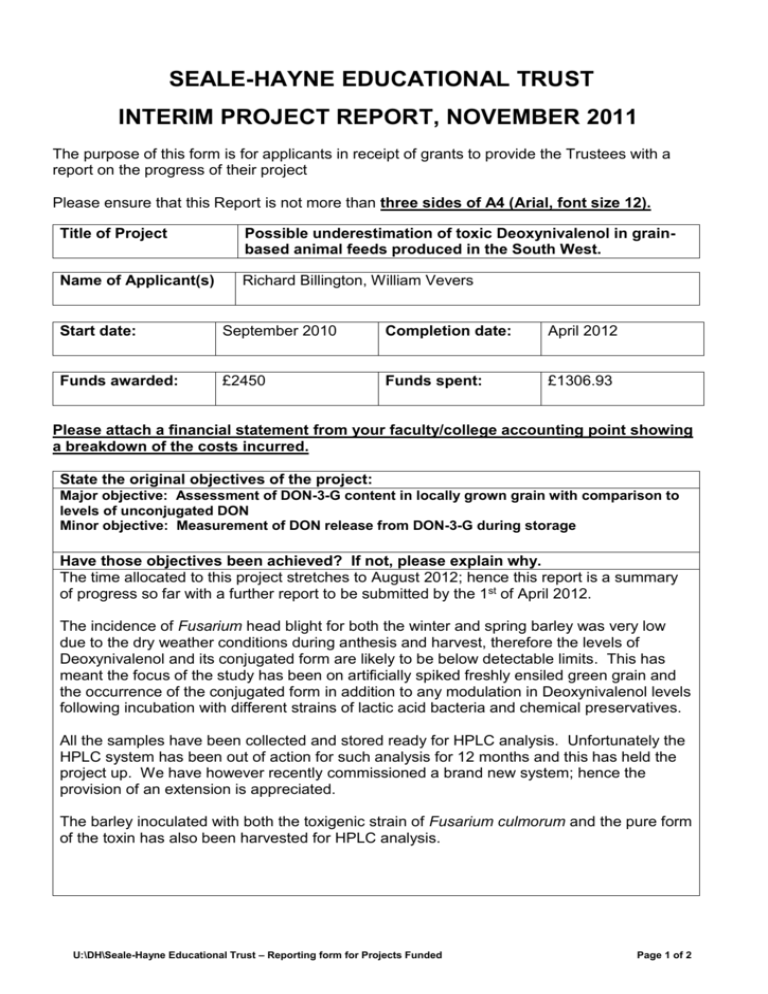
SEALE-HAYNE EDUCATIONAL TRUST INTERIM PROJECT REPORT, NOVEMBER 2011 The purpose of this form is for applicants in receipt of grants to provide the Trustees with a report on the progress of their project Please ensure that this Report is not more than three sides of A4 (Arial, font size 12). Title of Project Possible underestimation of toxic Deoxynivalenol in grainbased animal feeds produced in the South West. Name of Applicant(s) Richard Billington, William Vevers Start date: September 2010 Completion date: April 2012 Funds awarded: £2450 Funds spent: £1306.93 Please attach a financial statement from your faculty/college accounting point showing a breakdown of the costs incurred. State the original objectives of the project: Major objective: Assessment of DON-3-G content in locally grown grain with comparison to levels of unconjugated DON Minor objective: Measurement of DON release from DON-3-G during storage Have those objectives been achieved? If not, please explain why. The time allocated to this project stretches to August 2012; hence this report is a summary of progress so far with a further report to be submitted by the 1st of April 2012. The incidence of Fusarium head blight for both the winter and spring barley was very low due to the dry weather conditions during anthesis and harvest, therefore the levels of Deoxynivalenol and its conjugated form are likely to be below detectable limits. This has meant the focus of the study has been on artificially spiked freshly ensiled green grain and the occurrence of the conjugated form in addition to any modulation in Deoxynivalenol levels following incubation with different strains of lactic acid bacteria and chemical preservatives. All the samples have been collected and stored ready for HPLC analysis. Unfortunately the HPLC system has been out of action for such analysis for 12 months and this has held the project up. We have however recently commissioned a brand new system; hence the provision of an extension is appreciated. The barley inoculated with both the toxigenic strain of Fusarium culmorum and the pure form of the toxin has also been harvested for HPLC analysis. U:\DH\Seale-Hayne Educational Trust – Reporting form for Projects Funded Page 1 of 2 Please summarise your project, outlining methods, results and conclusions Methods Barley was obtained immediately after combining and crimping (rolling,with a moisture content of ~40%). The chemical preservative Crimpstore (Kelvin Cave Ltd) was added at 4 litres per tonne during crimping with the lactic acid treatments added in the laboratory to untreated samples following compressing of grain into 100ml containers (3 replicates per treatment) and the addition of Deoxynivalenol (250µg/container or 5µg/g of moist material). The mini silo’s were incubated for 28 days at 15°C prior to milling and freezing for HPLC analysis. Counts of lactic acid bacteria, yeasts/moulds and clostridia were made on MRS, CODA and RCA agar plates respectively, to verify ensiling efficacy. Results The preliminary results of the crimped grain ensiling experiment indicate that the chemical preservative Crimpstore reduced yeast and mould counts to almost zero whereas the lactic acid bacterial inoculants did not shift the yeast/mould counts significantly from uninocuated levels, although the best strains were in house strains isolated from wild birds rather than commercial silage additives. No clostridia colonies were evident.and gas production was insignificant. What specific outcomes (tangible or intangible) have arisen from this research (including publication, events, media interest and other forms of dissemination)? The results so far have contributed to W. Vevers’ PhD thesis and have helped forge collaborative ties with Kelvin Cave silage additives Ltd who facilitated the collection of crimped barley. On completion of the final stages of the project, an article will be published in Animal Feed Science or similar. U:\DH\Seale-Hayne Educational Trust – Reporting form for Projects Funded Page 2 of 2
